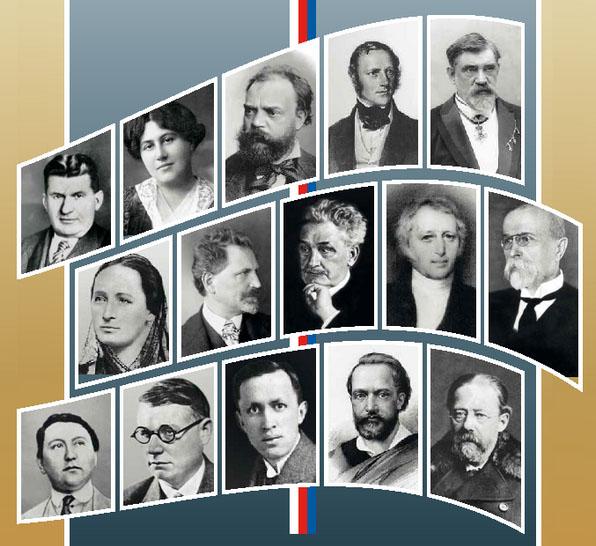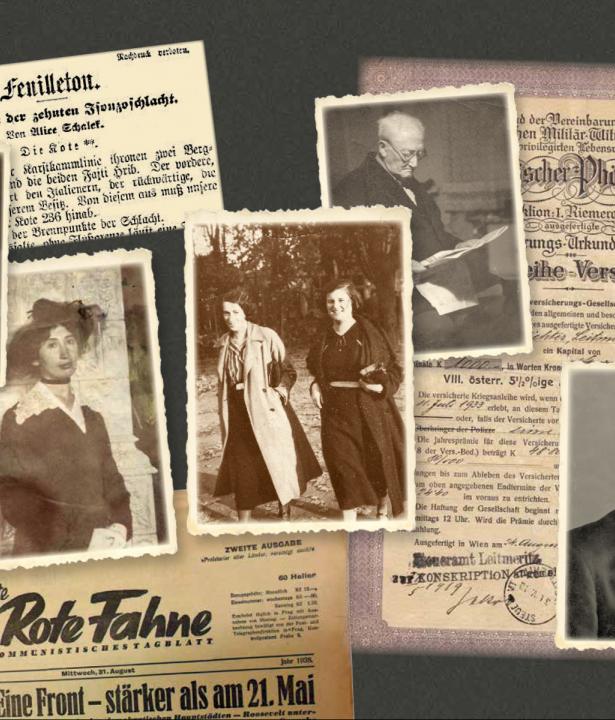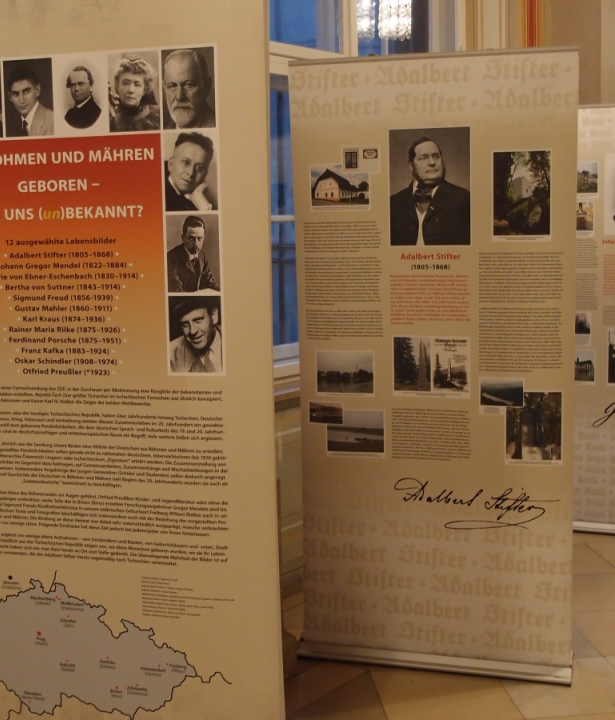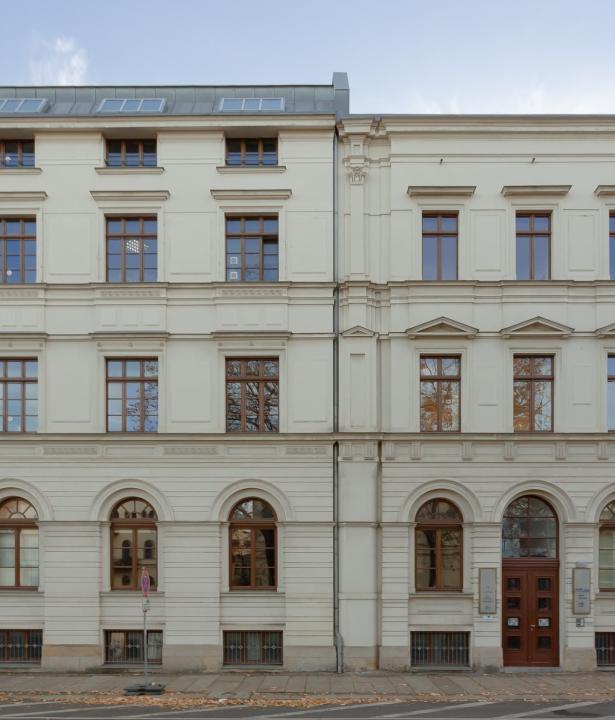How did Antonín Dvořák perceive the German language? What was the relationship of the composer Leoš Janáček or the soprano Ema Destinová to the Habsburg Monarchy? What moved Karel Čapek and Tomáš Garrigue Masaryk to become so committed to peaceful German-Czech coexistence? The travelling exhibition of the Cultural Office for the Bohemian Lands "Bedeutende Tschechen" ("Czechs of prominence") provides insights into these questions.


Statue of Masaryk in front of the castle in Prague. XXX / Kulturreferat für die böhmischen Länder, Free access - no reuse
Statue of Masaryk in front of the castle in Prague. XXX / Kulturreferat für die böhmischen Länder, Free access - no reuse


Pull-up banners of the exhibition in the Czech Center in Munich. XXX / Kulturreferat für die böhmischen Länder, Free access - no reuse
Pull-up banners of the exhibition in the Czech Center in Munich. XXX / Kulturreferat für die böhmischen Länder, Free access - no reuse
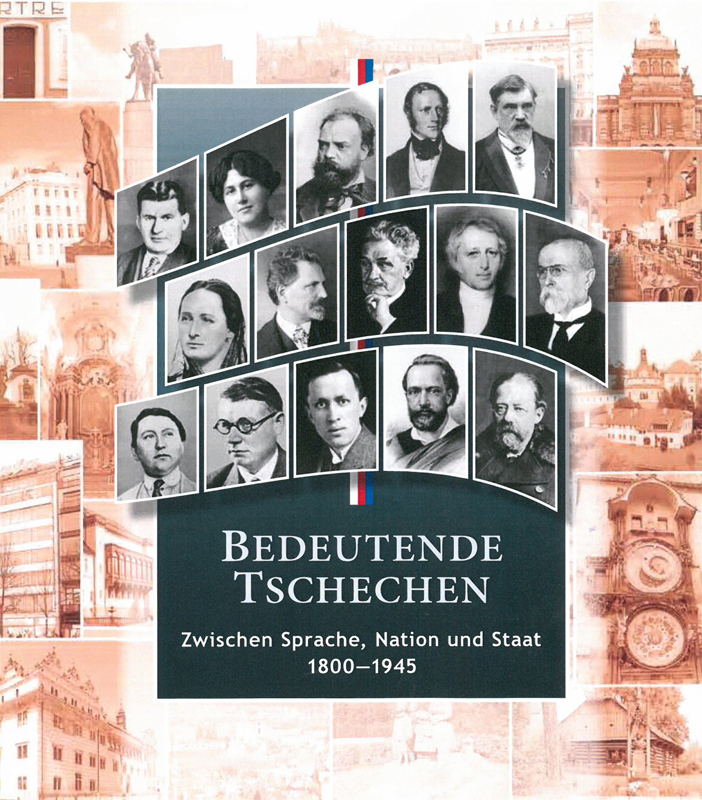

Cover of the book "Bedeutende Tschechen". XXX / Kulturreferat für die böhmischen Länder, Free access - no reuse
Cover of the book "Bedeutende Tschechen". XXX / Kulturreferat für die böhmischen Länder, Free access - no reuse
Text
The focus of the exhibition is the often contradictory relationship that 15 well-known Czech personalities had to the German language and culture and to the Habsburg Monarchy. We are introduced to: Tomáš Baťa, Karel Čapek, Ema Destinová - Emmy Destinn, Antonín Dvořák, Jaroslav Hašek, Leoš Janáček, Josef Jungmann, František Křižík, Josef Lada, Karel Hynek Mácha, Tomáš Garrigue Masaryk, Alfons Mucha, Božena Němcová, František Palacký, and Bedřich Smetana.
Externe Links
External Image


